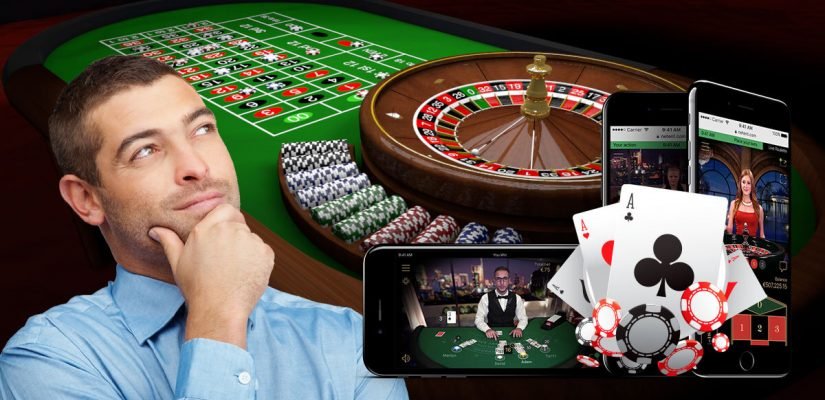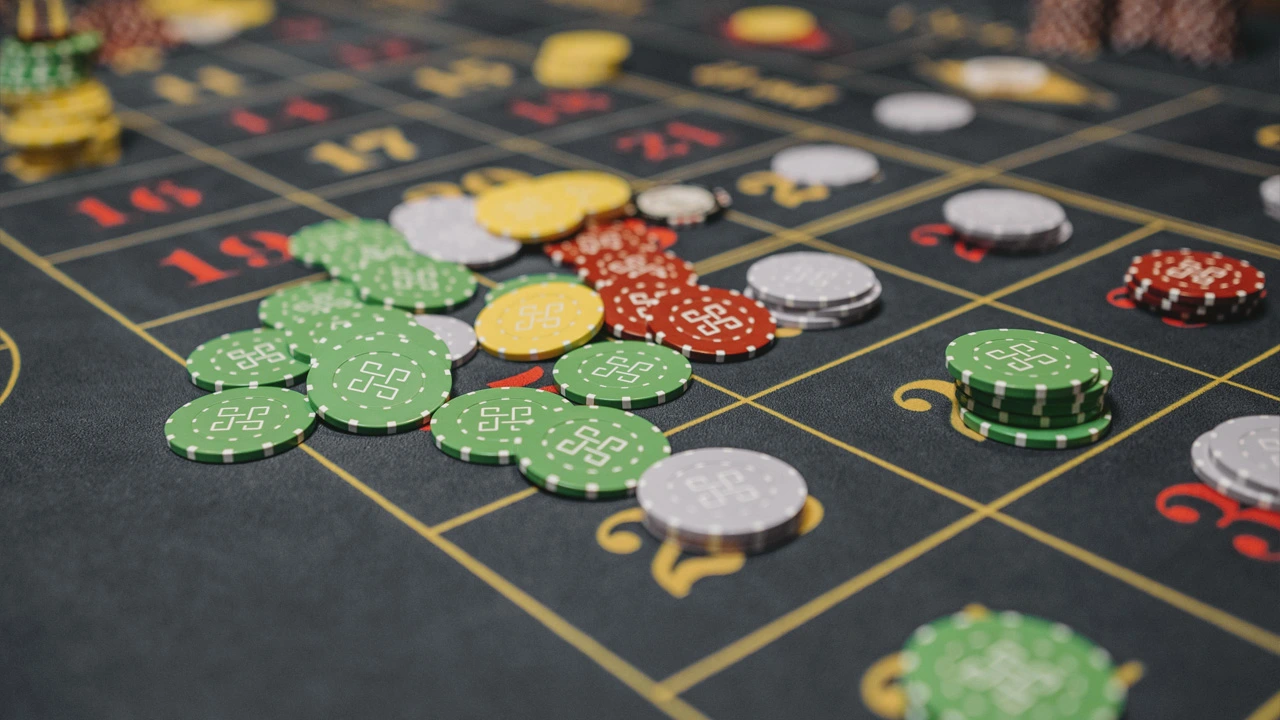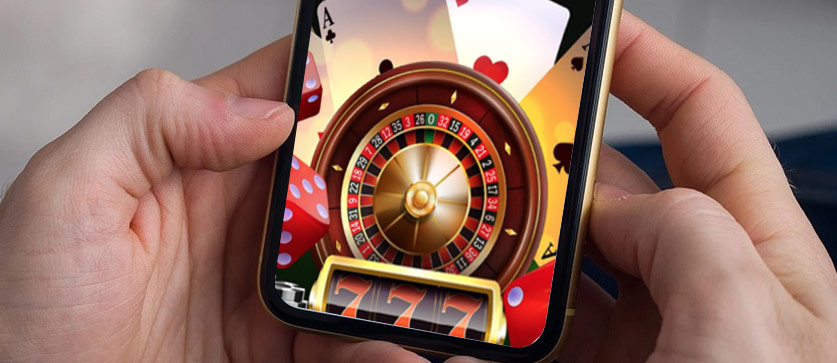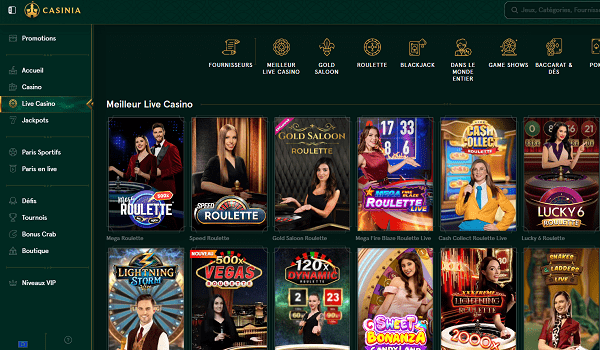L’astuce intelligente des casinos de meilleurs en ligne fiables juin 2025 en France dont personne ne parle
L’astuce intelligente des casinos de meilleurs en ligne fiables juin 2025 en France dont personne ne parle
Table des matièresQuelques déclarations factuelles connues sur Meilleur Casino en Ligne 2025 – Top 10 des Casinos Fiabbles The Meilleur Casino en Ligne 2025 – Top 10 DES CASINOS FIABLES CONDITIONSExaminez ce rapport sur le meilleur casino en ligne Retrait Rapide: Guide Complete …
Chaque Partie Vous plonge danans l’ambiance difFérente Mêlant Suspense et Réflexion. Prêt à testeur vos talents sur un casino en ligne France ? ✅ Blackjack: Affrontez le Croupier en essai d’Atteindre 21 points Sans Jamais les Dépasser. Mélange de Stragégie et de Hasard, il fait partie de Jeux de Table des Joueurs Méthoques.
Les variantes de roulette Sont des Jeux de Table Combinant Frissons et Prises de Risque. ✅ Poker: ConsTuez La meilleure main ou bluffez pour pousser vos adversaires à jeter leurs Cartes. Parmi Les Jeux de Tables, Le Poker est sans Doute Celui Où la Psychologie est Aussi IMPORTANTE QUE LES CARTES.
Simple, Élégant et Rapide, Le Baccarat est Parfait Si Vous Aimez L’Action Rapide. ✅ Craps: Lancez Les Dés et Pariz sur les Résultats. Connu couler ses multiples options de pari, il entre dans la catégorie des jeux de table pour les amateurs de divertistes dynamiques. Tous ces jeux offrent une enquête inédite Sur un casino en ligne français, à vous de choisir celui qui fera vibrer voreâme de joueur ! Le Casino en direct ou l’Eppériement Authentique de Casino en Ligne ! Grâce à une retransmission en streaming, Vous Jouez Avec de Vrais croupiers Depuis le Confort de Votre Canapé.

Plus Elles Sont élevées, plus le Risque est Grand… Mais la Récompense auSsi! Les bonus, c’est l’arme secrère des casinos en ligne fiables pour setuire et fidéliser ! C’est d’Ailleurs ce qui rend les casinos en ligne bien plus attirifs que les casinos terrestres. VOYEZ LES BONUS CASINO COMME DE VÉRITALS BOOSTER.
Ce qui frappe avec les bonus de casino en ligne, c’est Leur Variété. Petits, Grands, Minces OU Enrobés, Ils Sont Si Nombreux Qu’on a Parfois du Mal https://blocksurvey.io/4U3Ix4GaRtCaI6ArrJy2bA?v=o à S’y Retrouver. Nous avons jugé bon de vous exposer les types de bonus que vous serez amené à rencondr dans les meilleurs casinos en ligne France.
Tout sur Meilleur Casino en Ligne Français – Top 10 vers 2025

Évidément Destiné aux Nouveaux Inscrits, le Bonus de Bienvenue est Activé Lors du Dépôt Initial. Dans l’écrasante Majorite des Cas, il se prévente Sous la Forme d’Un pourcentage sur Votre Premier Dépôt (100% jusqu’à 500 €, par exemple). Il une vocation à Doubler, Tripler, Voire quadrupler vore Premier Versment.
Il peut également se ré-partir sur les trois, quatre, Voire Cinq Premiers Dépôts. S’il PÉSENTE L’Anantage de Booster Votre Capital de DÉPART, N’EN OUBLIEZ PAS PAS AUTANT LES CONDITION ! Également Appeles “Tours Gratuits”, les Free Spins Sont attachés à l’univers du Casino en Ligne Comme Saturne à ses anneaux.
Les libres spins vous permettent d’activer Les Rouleaux d’UNE Machine à Sous bien de la finie (Sans Devoir Miser. Si les libres spins Sont GRATUITS (par définition), Les Gains Générés, Eux, Peuvent Être Soumis à certains conditions (Comme un parier). À noter que vous aurez également la possibilité d’obtenir un “bundle” de libres spins en échange de points de fidélité (c’est valable les casinos en ligne France qui abritent une boutique vip).
Alors lui, c’est le bonus que tout le monde s’arrache. Il faut dire que juer en argent rétél sans obligation de depôt, c’est un programme assez alléter… totefois, le bonus sans décol. D’Ordinaire, il se prévente sous la forme d’un montant très modeste (entre 5 et 20 €, à tout casser) ou de tournets grattes à utiliser Sur une machine à sous spécifique.
Bref, assistez-vous à des gains gains plafonnés et à des conditions de rétrait dramatiques. Néanmoins, le Bonus Sans Dépôt est l’allié de circonstance de Ceux qui veulent Tester un casino en ligne sans risque. Le Bonus sans Wager, C’est la Poule aux œufs d’Or. Pas d’étonnant Qu’on Ait un mal de chien à enrr.
Oui, oui, Vous aiz bien lu ! AVEC LE BONUS SANS SANSER, VOUS N’AVEZ PLUS BESOIN DE MISER LE MONTANT DE VOTRE BONUS UN NOBRE X DE FOIS AVANT DE POUVOIR ENCAISSER LES GAINS QU’IL A GÉNÉRÉS. Généreux en apparence, il est totefois fort probable que ses conditions d’utilisation soient associés à certaines restrictions (à Commission par un plafonnation drastique des gains embauchés).
AU Casino en Ligne, sur NE Connait Jamais l’Essorment de Session de Jeu à l’avance. Parfois, sur Remorte des Gains Mirifiques. Parfois, sur yoisse des panaches. C’est justement pour pallier les effets néfastes d’une session de jeu malchanceuse que les meilleurs casinos en ligne at eu l’idée d’introduire le bonus de cashback.
Dans l’Écrasante Majorite des Cas, les bonus de cashback font partitie ingrante des programmes de fidélité des meilleurs casinos français en ligne. Le pourcentage du Remboursment Augmentite à Mesure que Les Joueurs Gravissente les Échelons du Club VIP. Les programmes de Fidélité et Autres Clubs VIP, Parlons-en, tiens… les casinos en ligne fiables ne peint pas se targuer d’être les MEILLEUR.
The Ultimate Guide to 10 Meilleurs Casinos en ligne pour France 2025: fiable et …
En gros, plus ve jouez, plus Vous Gagnez. C’est comme Magasin: Plus Vous Achettez, plus les Ristournes Pleuvent. Les bonus, c’est génial, les sites d’attention aux conditions qui s’y cachent ! Exigences de Mise, Limites de Retrait, Jeux Exclus… la liste des restrictions est parfois longue comme.
Un bonus de casino en ligne est D’autant plus de quands rentables. Verser Jouer sur un casino en ligne, choisissez des moyens bancaires rapides, sécurisés et accessoires. Le mais étant de vous concentrer sur l’essentiel. ✅ CARTES DE PAIIMENT: C’EST LA BASE SUR N’IMPORTE QUEL CASINO EN LIGNE FIABLE.
✅ Portefeuilles Électroniques: Paypal, Skrill, netteller. Réputés ultra-rampides, ILS SONT SYSTÉMATICMENT PROPOSÉS SUR LE MEILEAUR CASINO EN LIGNE. Les Joueurs Souhaiant Gardeur un Contrôle Total Sur leurs Finances Choissente un de ces portes. ✅ CARTES PRÉPAYÉES: PAYSAFECCARD, NEOSURF. Des Cartes Parfaites pour Jouer sans partager Vos Informations Bancaires.















